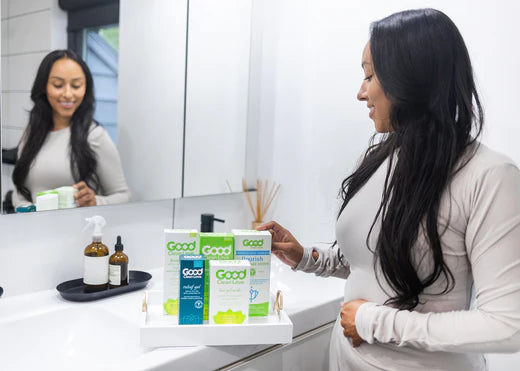What we call things matters. Our naming process, whether conscious or unconscious, comes to define how we think and experience ourselves and the world. For too long, reproductive health has been designated with terms like “feminine hygiene” and “family planning”. Not only is this language exclusive, but it is lacking in accuracy. These categories do not capture the diverse experiences of the wide realm of sexual wellness. Planning for a family has nothing to do with the need for healthy lubrication. And the word “feminine” may not represent your experience as a vagina-owner.
Changing How We Talk About Vaginal Health
Reflecting on the real meaning of our words means that we will be using accurate anatomical parts when we talk about abnormal odors or unusual discharges. Here's the thing: When it comes to vaginas, there is nothing unusual about odor or discharge. But sometimes, when odor or discharge is unusual for you, this could be your body sending you a signal and it deserves to be heard.
It’s strange that we have been taught from a young age to conduct at-home breast health screenings, but we have never been taught how to evaluate our dynamic vaginal health. Read on for the beginning of a three-part series on body signals related to vaginal health – understanding signs from unusual-for-you discharge, odor, and more.
You'll learn how to spot your body's messages and what you can do if your vaginal biome is out of balance. Our bodies are incredibly smart, and they are constantly sending us messages. Refining our language will help us listen better.
Normalizing Vaginal Symptoms
Between our periods, pregnancies, our intimate life, and everyday hygiene and care, those of us with vaginas can attest to the wide range of symptoms we experience – both normal and abnormal, pleasant and unpleasant. In fact, the vast majority of women will suffer from a number of conditions that create discomfort. Over 80 percent of women will have menstrual pain at some time in their life; 75 percent will get a yeast infection; 44 percent will experience painful intercourse; and 40 percent will get bacterial vaginosis.

Yet, many women feel shame about common symptoms like odors, discharge, or discomfort.
Instead of viewing these with shame, it can be immensely beneficial to see these symptoms as a normal part of having a vagina. With this mindset in place, those with vaginas can feel empowered to self-interpret what they’re experiencing – particularly when those symptoms feel out of the ordinary.
What's Next?
In part two of this series, we share the top signs and signals your body sends you about your vaginal health.














